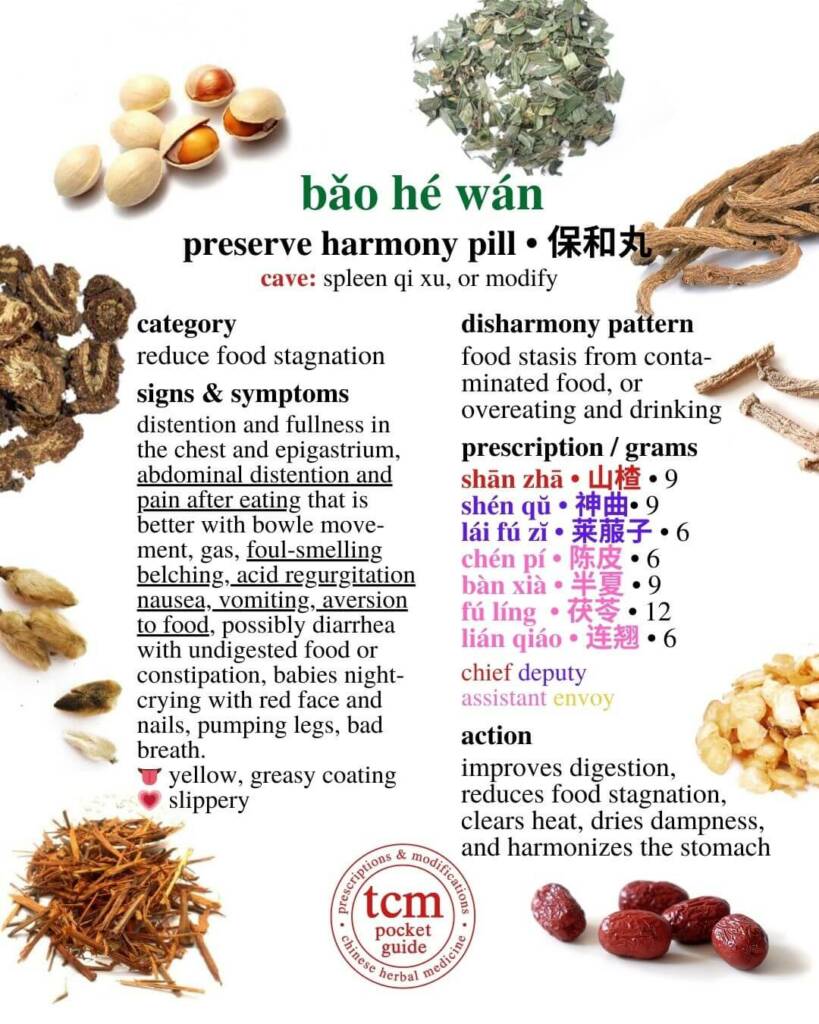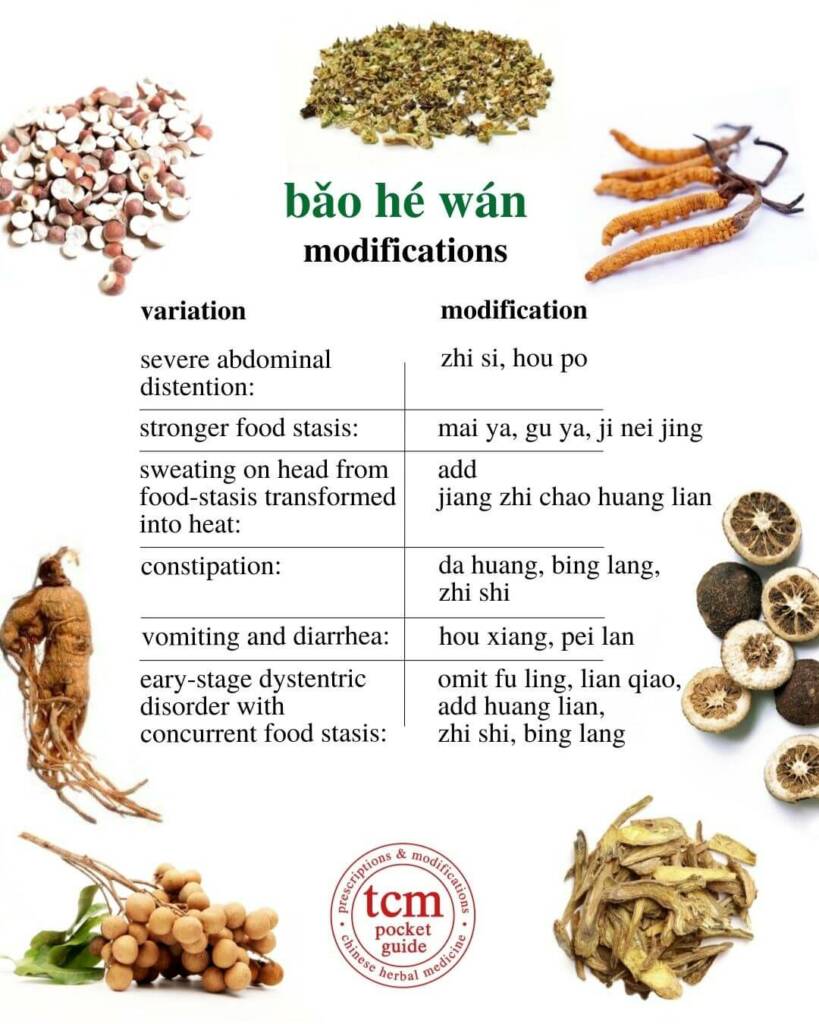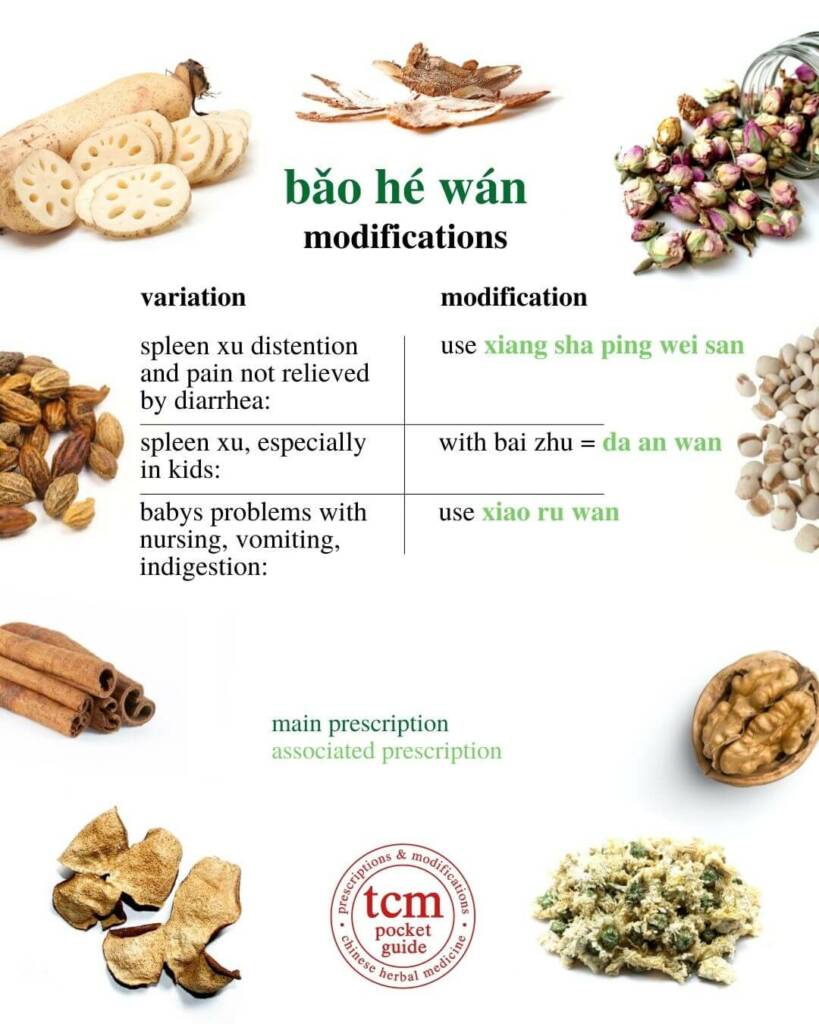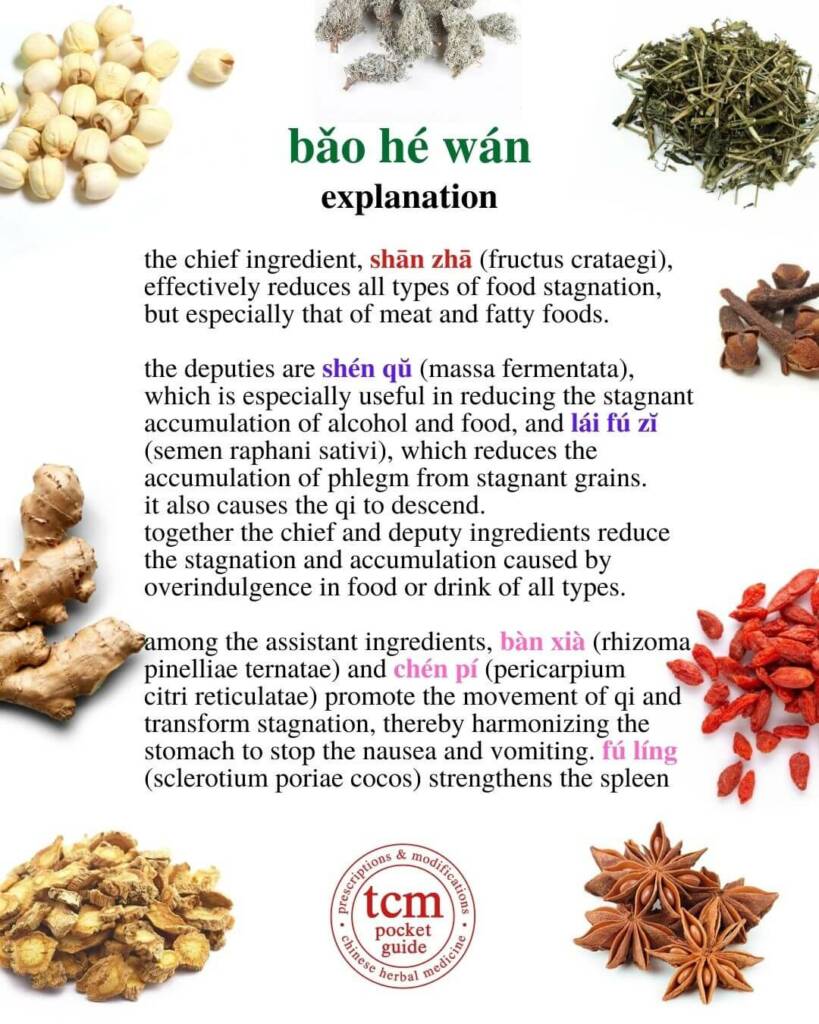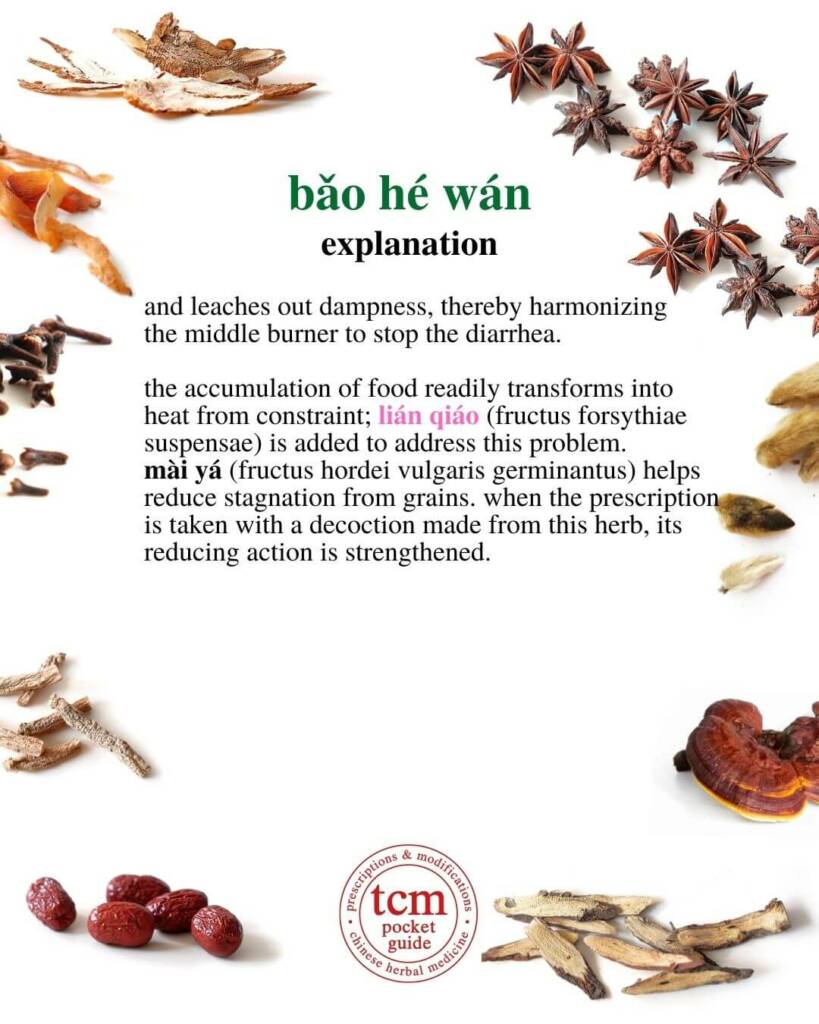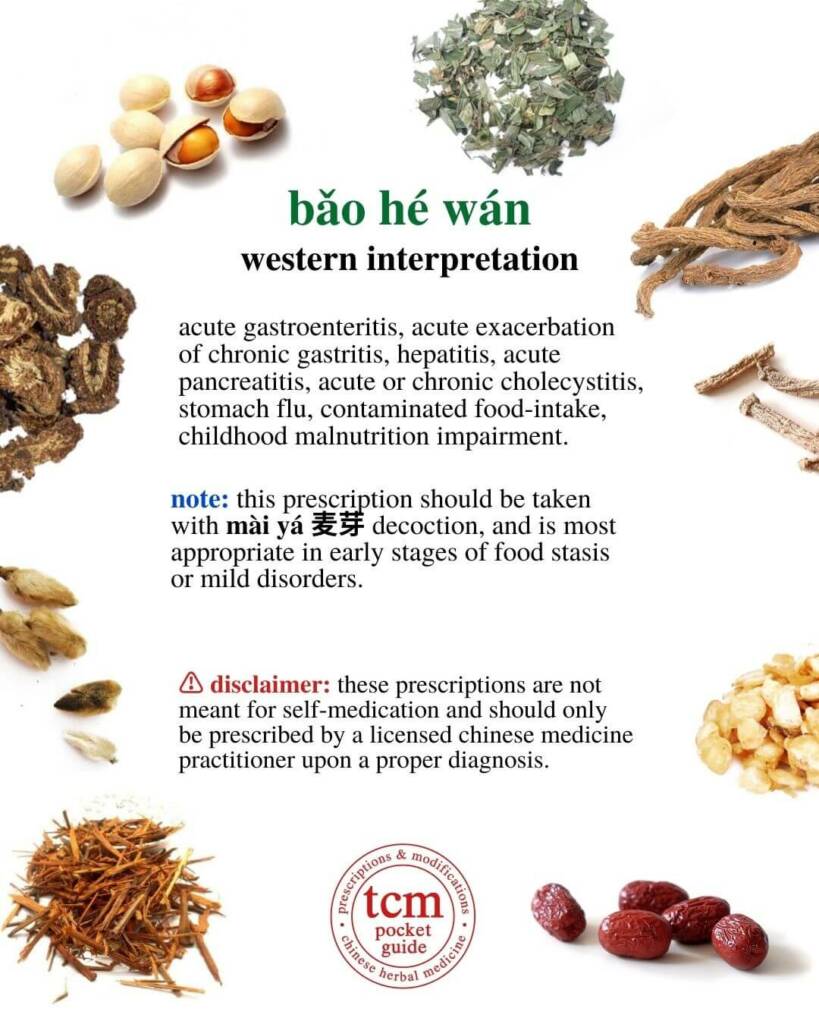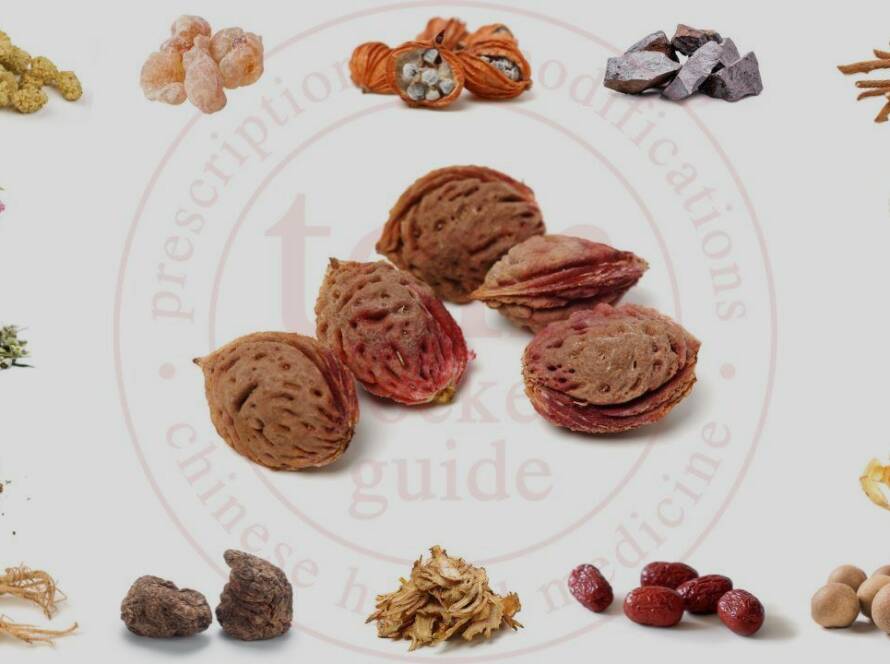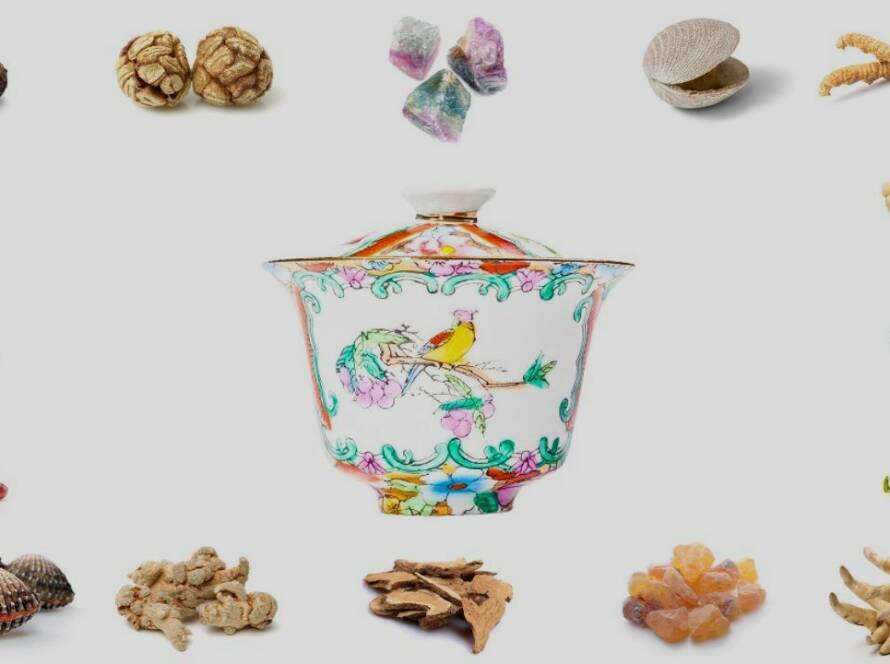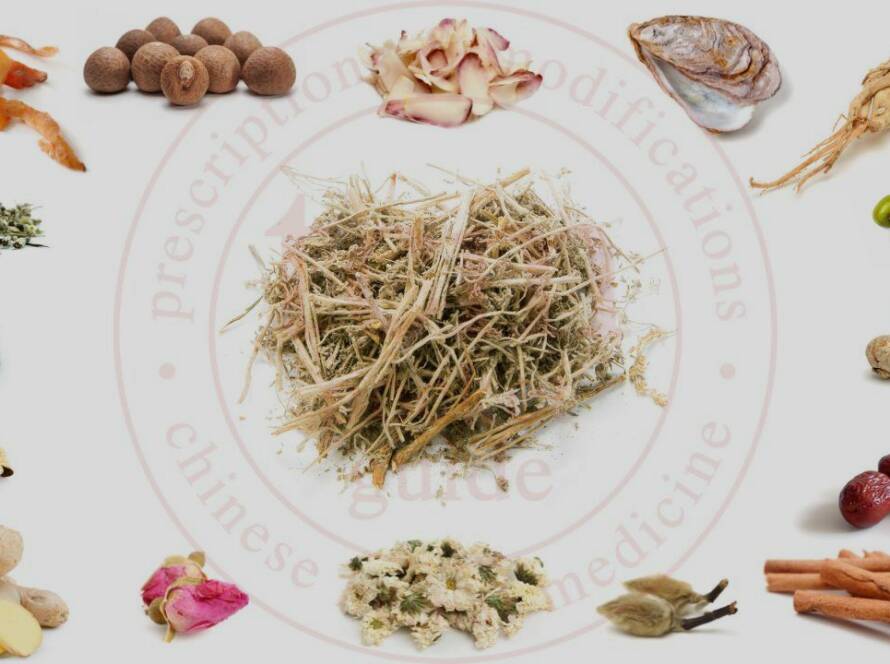bǎo hé wán is used for patterns with
food stasis from contaminated food, or overeating and drinking.
symptoms indicating the use of bǎo hé wán
distention and fullness in the chest and epigastrium, abdominal distention with occasional pain, gas, rotten smelling belching, acid regurgitation, nausea and vomiting, aversion to food, maybe diarrhea, dysentery, maybe constipation, anorexia, bad breath, intermittent fever, babies night-crying with red face and pumping legs.
western interpretation of bǎo hé wán
indigestion, acute gastroenteritis, acute exacerbation of chronic gastritis, acute or chronic hepatitis, acute or chronic pancreatitis, acute or chronic cholecystitis, stomach flu, gastric hyperacidity, acid regurgitation, peptic ulcer, contaminated food-intake, childhood malnutrition impairment, celiac disease, anorexia.
explanation of the mechanism
this is the typical presentation of food stagnation that occurs from eating contaminated food, or from gross overeating and drinking. excessive consumption of alcohol, meat, and fatty foods in particular may inhibit the ability of the spleen and stomach to properly receive, transform, and transport food. this results in stagnation and accumulation of undigested food which obstructs the qi mechanisms of the middle burner, leading to focal distention and fullness in the chest and epigastrium, and abdominal distention. when it is severe, pain ensues.
food stagnation also disrupts the ascending and descending functions of the spleen and stomach. when the turbid yin products of digestion do not properly descend, there is foul-smelling belching, acid regurgitation, nausea, and vomiting.
when the spleen qi is unable to rise, there is diarrhea. when the stomach takes in more food than it can digest, there is an aversion to food. stagnation in the digestive system is reflected in the greasy tongue and slippery pulse. the yellow coating reflects the presence of heat in the interior caused by the constraint from food stagnation.
(bensky & barolet)

created with love in switzerland 🇨🇭
feel free to share this content:


